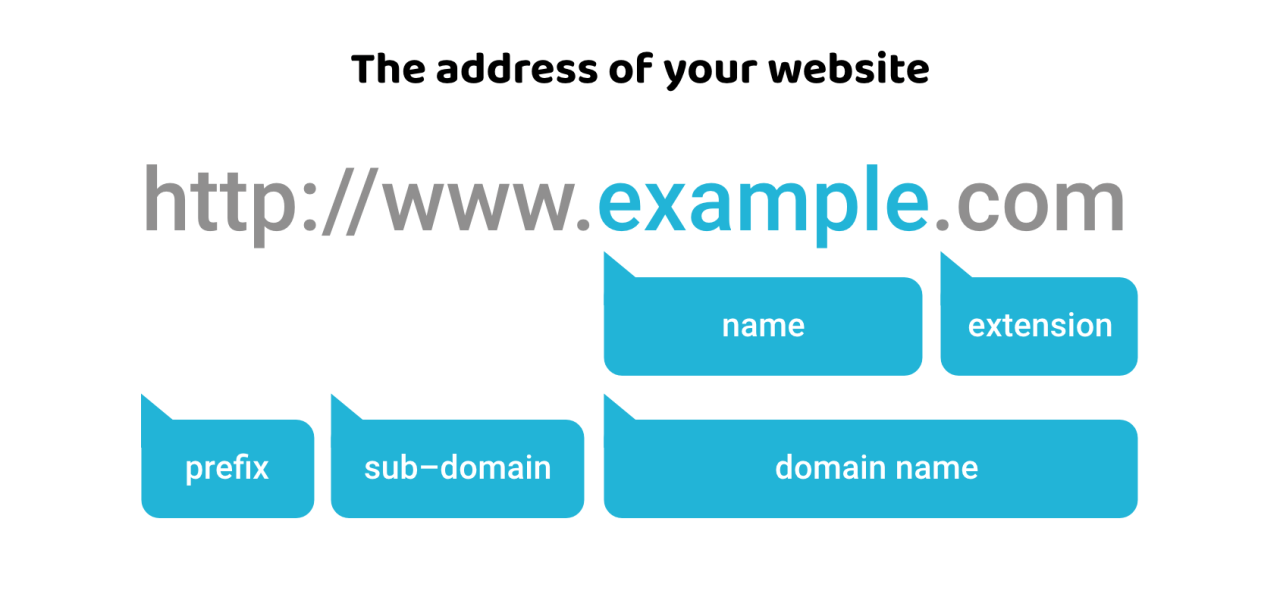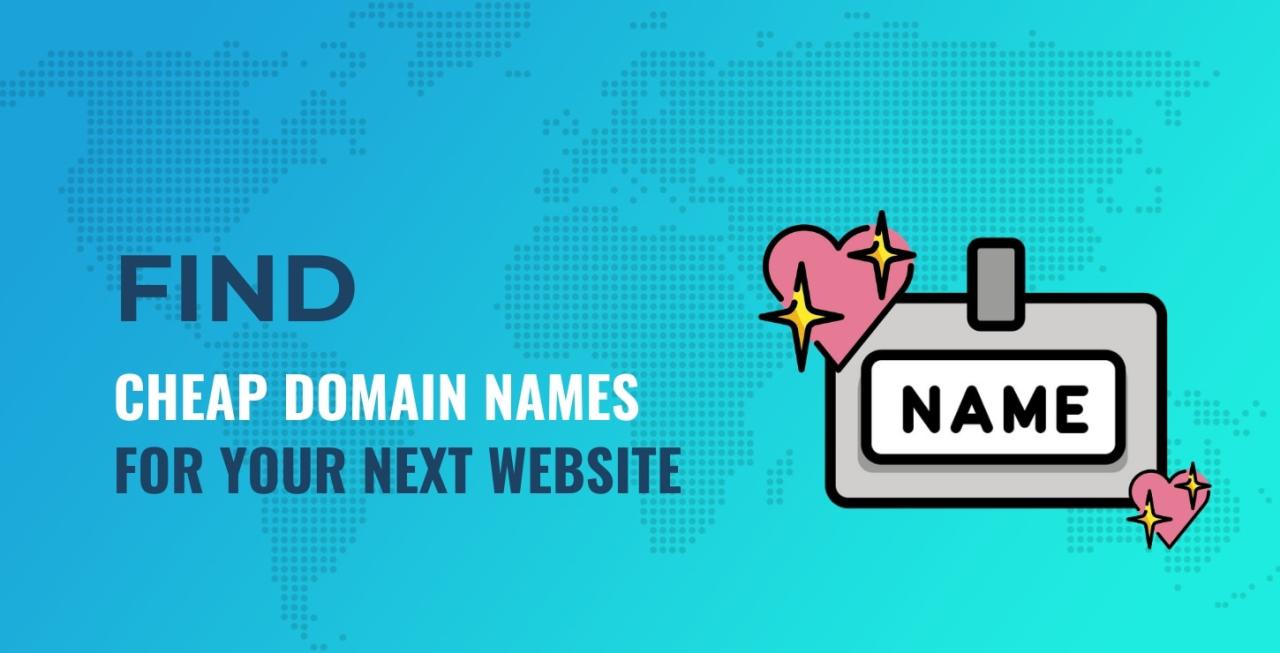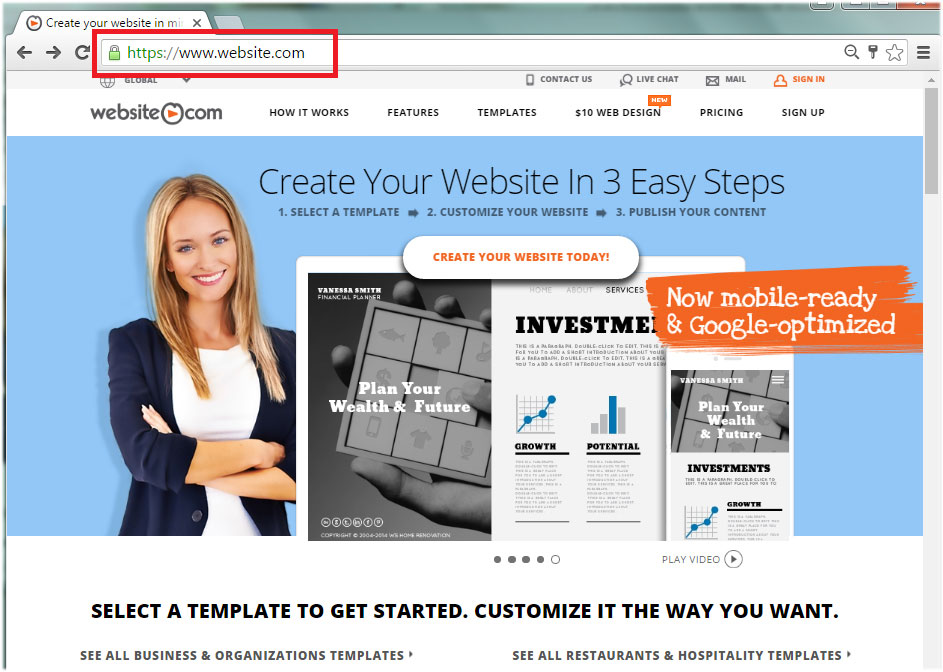Website domain, your online identity, is the address that defines your presence on the internet. It’s the unique name that allows users to access your website, just like a physical address directs people to your home. A well-chosen domain name is essential for building a strong online brand and attracting visitors.
From choosing the right extension to understanding the registration process, navigating the world of domain names can seem daunting. This guide provides a comprehensive overview of website domains, covering everything from the basics to advanced strategies for managing and optimizing your online identity.
Domain Name Basics
A website domain name is your website’s unique address on the internet. It’s what people type into their web browsers to access your website. Just like a physical address helps people find your home, a domain name helps people find your website.
Domain Extensions
Domain extensions, also known as top-level domains (TLDs), are the suffixes that come after the dot in a domain name, such as “.com”, “.org”, or “.net”. They provide additional information about the purpose or nature of the website.
- .com: This is the most popular domain extension, often used for commercial websites.
- .org: This extension is typically used for non-profit organizations, charities, and educational institutions.
- .net: This extension is often used for network-related websites, such as internet service providers (ISPs) and technology companies.
- .edu: This extension is reserved for educational institutions, such as schools, colleges, and universities.
- .gov: This extension is used for government websites.
Choosing a Memorable Domain Name
Choosing a memorable and relevant domain name is crucial for your website’s success. It should be easy to remember, spell, and pronounce.
- Relevance: The domain name should be relevant to your website’s content and target audience. For example, a website selling shoes might use a domain name like “shoes.com” or “best-shoes.com”.
- Memorability: A memorable domain name is easy to recall and share. Short, catchy, and unique names are more likely to stick in people’s minds.
- Availability: Make sure the domain name you choose is available. You can check for availability using domain registrars like GoDaddy, Namecheap, or Google Domains.
Domain Name Registration
Registering a domain name is the first step in establishing your online presence. It’s like reserving your unique address on the internet. This process involves selecting a domain name and paying a fee to a domain registrar to secure it for a certain period.
Choosing a Domain Registrar
Selecting the right domain registrar is crucial, as they play a vital role in managing your domain name. Several factors should be considered when making this decision.
- Pricing: Domain registrars offer various pricing plans, and it’s essential to compare them to find the best value for your needs. Some registrars offer discounts for multi-year registrations, while others may have special promotions.
- Features: Domain registrars provide a range of features, including domain privacy protection, DNS management, and email forwarding. It’s essential to choose a registrar that offers the features you need and are willing to pay for.
- Customer Support: Having reliable customer support is crucial, especially if you encounter any issues with your domain name. Look for registrars with responsive support channels, such as live chat, phone, and email.
- Reputation: It’s important to choose a reputable domain registrar with a proven track record of providing reliable services. Check online reviews and testimonials to gauge the registrar’s customer satisfaction.
Popular Domain Registrars
Several popular domain registrars offer reliable services and a wide range of features.
- GoDaddy: One of the largest and most well-known domain registrars, GoDaddy offers a wide range of services, including domain registration, web hosting, and email. They are known for their user-friendly interface and extensive customer support.
- Namecheap: Known for its competitive pricing and transparent pricing structure, Namecheap offers various domain registration and web hosting services. They are also known for their strong commitment to privacy and security.
- Google Domains: Google Domains offers a straightforward and user-friendly platform for registering and managing domain names. They are known for their integration with other Google services, such as Google Workspace and Google Analytics.
Domain Name Registration Process
The process of registering a domain name is straightforward and can be completed online within a few minutes.
- Choose a Domain Registrar: Select a domain registrar that meets your needs and budget.
- Search for Your Desired Domain Name: Enter the desired domain name into the registrar’s search bar to check availability.
- Select a Domain Extension: Choose the appropriate domain extension, such as .com, .net, or .org, for your website.
- Complete the Registration Form: Provide your personal information, including your name, address, and contact details.
- Choose a Registration Period: Select the registration period for your domain name, typically ranging from one to ten years.
- Pay the Registration Fee: Pay the registration fee using a credit card, debit card, or other payment methods.
- Confirm Your Registration: You will receive a confirmation email from the domain registrar.
Domain Name Renewal
After your domain name registration period expires, you need to renew it to keep your website online. Most domain registrars will send you a renewal notice before the expiration date, giving you ample time to renew your domain name. Failing to renew your domain name will result in its expiration and possible loss of your website.
Domain Name Availability and Search
Once you have a good idea of what you want to name your website, the next step is to check if the domain name is available. This is crucial because if the name is already taken, you’ll need to come up with a different one.
Domain Name Availability Search Tools
Domain name availability can be checked using a variety of tools. Here are a few popular options:
- Domain registrars: Most domain registrars, such as GoDaddy, Namecheap, and Google Domains, have built-in domain name search tools. You can simply type in the domain name you want to check, and the tool will tell you if it’s available.
- Domain name search engines: There are also dedicated domain name search engines like Namecheap’s Domain Search and Domain.com’s Domain Search. These engines search across multiple registrars, so you can see if the name is available anywhere.
- WHOIS lookup tools: A WHOIS lookup tool can provide information about a domain name, including its registration status. This can be useful if you’re unsure if a domain name is available or if you want to find out who owns a particular domain name.
Strategies for Finding Creative Domain Names
Finding a unique and memorable domain name can be challenging, but there are a few strategies you can use:
- Brainstorming: Start by brainstorming a list of words or phrases that are relevant to your website’s content. Then, try different combinations of these words to create potential domain names.
- Use a domain name generator: Domain name generators are tools that can help you come up with creative domain names. These tools often use algorithms to generate variations on your s or phrases.
- Consider using a different TLD: Instead of using the traditional .com TLD, consider using a different top-level domain (TLD) like .net, .org, or .io. This can help you find a unique domain name that is available.
- Use numbers or hyphens: Adding numbers or hyphens to your domain name can help you find a unique and available option. For example, instead of “mywebsite.com,” you could use “mywebsite1.com” or “my-website.com.”
Domain Name Ownership and Management
Owning a domain name is like owning a piece of digital real estate. It grants you exclusive rights to use that specific name online, allowing you to build your brand, host your website, and connect with your audience. Understanding the legal aspects and practicalities of domain name ownership and management is crucial for anyone who wants to establish a successful online presence.
Legal Aspects of Domain Name Ownership
Domain name ownership is governed by legal frameworks that define rights and responsibilities. It’s essential to understand these legal aspects to ensure you’re using your domain name responsibly and protecting your intellectual property.
- Domain Name Registration Agreement: When you register a domain name, you enter into an agreement with the registrar, outlining terms and conditions for using the domain. This agreement typically covers issues like ownership, renewal, and transfer.
- Intellectual Property Rights: Domain names can be protected under intellectual property laws, particularly trademark law. If your domain name is also a registered trademark, you have additional legal protections against infringement.
- Domain Name Disputes: Disputes can arise over domain name ownership, especially if two parties claim rights to the same name. The Uniform Domain-Name Dispute-Resolution Policy (UDRP) provides a process for resolving such disputes through arbitration.
Managing and Updating Domain Name Settings
Managing your domain name settings is crucial for ensuring your website functions correctly and securely. These settings include DNS records, contact information, and other configurations that control how your domain interacts with the internet.
- DNS Records: DNS (Domain Name System) records are crucial for connecting your domain name to your website’s server. They translate human-readable domain names into IP addresses that computers understand. Common DNS record types include A records (for websites), MX records (for email), and CNAME records (for subdomains).
- Contact Information: Keeping your contact information up-to-date is essential for receiving important notifications from your registrar, such as renewal reminders and domain name transfer requests.
- Domain Name Privacy: Domain name privacy services help protect your personal information from being publicly available in WHOIS databases. This can help prevent spam and phishing attempts.
Protecting Your Domain Name from Hijacking or Misuse
Domain name hijacking is a serious threat, where malicious actors gain control of your domain name, redirecting traffic to their own sites or using it for fraudulent purposes.
- Strong Passwords: Use strong and unique passwords for your domain name registrar account and other related services. Avoid using common or easily guessed passwords.
- Two-Factor Authentication: Enable two-factor authentication (2FA) for your domain name registrar account, adding an extra layer of security by requiring a code from your phone or email in addition to your password.
- Regular Monitoring: Monitor your domain name registration details regularly for any unauthorized changes. Check your contact information, DNS records, and other settings to ensure they are accurate and haven’t been altered.
- Domain Name Locking: Some registrars offer domain name locking, which prevents unauthorized transfers of your domain name. This helps prevent hijacking attempts.
Domain Name Branding and Marketing: Website Domain
A domain name is more than just an address on the internet; it’s a crucial element in establishing your brand’s identity and reaching your target audience. A well-chosen domain name can contribute to brand recognition, credibility, and ultimately, your online success.
Leveraging a Domain Name for Marketing
A domain name can serve as a powerful marketing tool, enhancing your brand’s presence across various platforms.
- Social Media Integration: A consistent domain name across your social media profiles creates a cohesive brand identity. For example, using “yourbrand.com” as your website and “yourbrand” as your social media handle strengthens brand recognition.
- Email Marketing: A professional domain name (e.g., “[email protected]”) adds legitimacy to your email campaigns, building trust with potential customers. This can improve open rates and click-through rates, ultimately boosting your marketing efforts.
- Website Optimization: A relevant and memorable domain name can improve your website’s search engine ranking. Short, descriptive names are easier for users to remember and share, contributing to organic traffic.
Optimizing a Domain Name for Search Engines, Website domain
Search engine optimization () plays a vital role in driving traffic to your website. Here are strategies for optimizing your domain name for search engines:
- Integration: Incorporate relevant s related to your business or industry into your domain name. This helps search engines understand the content of your website, improving its ranking for those s.
- Domain Name Length: Shorter domain names are generally preferred by search engines and users alike. They are easier to remember, type, and share, contributing to better search visibility and user experience.
- Domain Name Extension: While “.com” remains the most popular extension, consider using a relevant extension (e.g., “.org” for non-profit organizations or “.net” for technology-focused businesses) to enhance your brand’s credibility and target audience.
Domain Name Transfer and Renewal
Domain name transfer and renewal are crucial aspects of domain management, ensuring your online presence remains active and accessible. Transferring a domain name involves moving it from one registrar to another, while renewal extends the registration period to prevent expiration.
Domain Name Transfer
Transferring a domain name to a different registrar can be beneficial for various reasons, such as seeking better pricing, accessing more features, or simply switching to a provider that better suits your needs.
Here’s a step-by-step guide on how to transfer a domain name:
- Unlock your domain: Contact your current registrar and unlock your domain name to enable transfers.
- Obtain the authorization code: Your registrar will provide an authorization code, also known as an EPP code, which is required to verify your ownership during the transfer process.
- Choose a new registrar: Research and select a new registrar that meets your requirements, such as pricing, features, and customer support.
- Initiate the transfer: At the new registrar, initiate the transfer process by providing your domain name, authorization code, and contact information.
- Confirm the transfer: You will receive a confirmation email from the new registrar. Verify the details and confirm the transfer.
- Complete the transfer: The transfer process typically takes several days to complete.
Domain Name Renewal
Renewing your domain name is essential to avoid expiration and maintain your online presence. If your domain name expires, it becomes available for registration by others, potentially leading to loss of your website, brand identity, and valuable online assets.
- Set reminders: Most registrars offer automated renewal reminders, but it’s good practice to set your own reminders to ensure you don’t miss the renewal deadline.
- Renew in advance: It’s advisable to renew your domain name well before the expiration date to avoid any potential issues or disruptions.
- Check for renewal options: Explore different renewal options offered by your registrar, such as multi-year renewals, which can often provide discounts.
Consequences of Domain Name Expiration
Letting your domain name expire can have significant consequences for your online presence and brand reputation.
- Loss of website access: If your domain name expires, you will lose access to your website and all its associated content.
- Brand damage: A lapsed domain name can damage your brand reputation and lead to confusion among customers.
- Opportunity for others: An expired domain name becomes available for registration by others, who can potentially use it for their own purposes, potentially impacting your brand or business.
- Domain name hijacking: In some cases, an expired domain name might be hijacked by malicious actors, who could use it for phishing or other fraudulent activities.
Domain Name Security and Privacy
Your domain name is the online address of your website, and it’s crucial to protect it from cyber threats. Just like you would secure your physical address, safeguarding your domain name is essential to ensure the safety and integrity of your online presence. This includes protecting your domain name from malicious actors who might try to hijack it or use it for fraudulent activities.
Domain Name Security Measures
Securing your domain name involves taking proactive steps to prevent unauthorized access and control. This includes measures like:
- Strong Passwords: Choose a strong password for your domain name registrar account, using a combination of uppercase and lowercase letters, numbers, and symbols. Avoid using easily guessable information like your name or birthdate.
- Two-Factor Authentication (2FA): Enable 2FA for your registrar account. This adds an extra layer of security by requiring you to enter a code sent to your phone or email, in addition to your password, when logging in.
- Domain Name System (DNS) Security: Use DNSSEC (Domain Name System Security Extensions) to protect your domain name from spoofing attacks. DNSSEC adds a digital signature to DNS records, making it harder for attackers to redirect traffic to malicious websites.
- Regular Security Checks: Monitor your domain name for any suspicious activity, such as unauthorized changes to DNS settings or website content. Be vigilant and report any unusual behavior to your registrar.
Domain Name Privacy
Protecting your personal information associated with your domain name is crucial. This information can include your name, address, phone number, and email address.
- Private Registration: Most registrars offer a private registration option that hides your personal information from public view. This service replaces your contact information with the registrar’s contact details, providing an extra layer of privacy.
- WHOIS Privacy: WHOIS is a database that contains information about domain name registrations. You can use a WHOIS privacy service to mask your personal information in the WHOIS database, making it harder for spammers and other unwanted contacts to find you.
- Separate Email Address: Use a separate email address specifically for your domain name registration and communications. This helps to protect your primary email address from spam and phishing attempts.
Domain Name Trends and Future Considerations
The world of domain names is constantly evolving, driven by technological advancements and changing user behaviors. Understanding these trends and their potential impact is crucial for businesses and individuals alike.
New Domain Extensions
The traditional .com, .net, and .org extensions are no longer the only options. New generic top-level domains (gTLDs) have emerged, offering more specific and relevant choices for websites. These new extensions, such as .shop, .tech, and .app, allow businesses to create more targeted and memorable domain names that reflect their industry or brand identity. For instance, a company specializing in online courses might choose a .academy domain, while a tech startup might opt for a .tech domain. This trend allows for greater diversity and personalization in the online space.
Domain Name Squatting
Domain name squatting, also known as cybersquatting, involves registering domain names that are similar to or identical to existing trademarks or brand names with the intention of selling them at a higher price. This practice can be detrimental to businesses, as it can lead to confusion among customers and damage brand reputation. For example, a company named “Tech Solutions” might find its domain name registered by someone else, forcing them to pay a premium to acquire it. To combat this, businesses can utilize trademark protection services and monitor domain name registration activity.
Impact of Blockchain Technology
Blockchain technology has the potential to revolutionize domain name management. Decentralized domain name systems (DNS) based on blockchain offer several advantages over traditional DNS, including increased security, transparency, and control over domain name ownership. These systems eliminate the need for central authorities, empowering individuals and organizations to manage their domain names directly. For example, a blockchain-based DNS could enable individuals to own and manage their digital identities, ensuring greater privacy and security.
Artificial Intelligence (AI) and Domain Names
AI is playing an increasingly important role in the domain name landscape. AI-powered tools can assist with domain name search, analysis, and even generation. These tools can analyze trends, identify available domain names, and suggest creative and relevant options. AI algorithms can also help businesses choose the most effective domain name for their specific target audience and marketing goals.
Predictions for the Future of Domain Names
The future of domain names is likely to be characterized by increased personalization, decentralization, and the integration of emerging technologies. As AI and blockchain technologies continue to evolve, we can expect to see:
- More personalized and relevant domain names
- Increased adoption of decentralized domain name systems
- Enhanced security and privacy features
- AI-powered tools for domain name management and marketing
Domain Name Examples and Case Studies

Domain names are the addresses of websites on the internet. They play a crucial role in brand recognition, online visibility, and user experience. A well-chosen domain name can be an asset to a business, while a poorly chosen one can hinder its success. This section examines successful domain names, detrimental choices, and legal battles surrounding domain names.
Successful Domain Names
Successful domain names are memorable, relevant, and easy to spell. They often reflect the brand’s identity or the products and services offered.
- Google.com: A simple and memorable name that perfectly reflects the company’s search engine capabilities.
- Amazon.com: Evokes a sense of vastness and abundance, reflecting the company’s vast product catalog.
- Facebook.com: A straightforward and easy-to-remember name that captures the essence of social networking.
- Airbnb.com: A clever combination of “air” and “bed and breakfast” that effectively communicates the company’s service.
- Netflix.com: A catchy and memorable name that has become synonymous with streaming entertainment.
Detrimental Domain Name Choices
Choosing a domain name that is difficult to remember, spell, or understand can negatively impact a business.
- 1-800-Flowers.com: While effective for phone calls, the domain name is not memorable and does not reflect the company’s brand.
- Drugs.com: A potentially confusing and misleading name that could be associated with illegal activities.
- YourCompany.biz: Using “.biz” instead of “.com” can make the domain name less trustworthy and professional.
- LongAndComplicatedName.com: A long and complex domain name is difficult to remember and share.
Domain Name Disputes and Legal Battles
Domain name disputes can arise when two or more parties claim ownership of the same domain name. These disputes can be resolved through legal action or alternative dispute resolution (ADR) processes.
- The “Cybersquatting” Case of “Amazon.com”: In the early days of the internet, a company called “Amazon Systems, Inc.” registered the domain name “amazon.com” and attempted to sell it to the online retailer Amazon.com. This led to a legal battle that was ultimately resolved in favor of Amazon.com.
- The “Domain Name Hijacking” Case of “Facebook.com”: In 2005, a hacker gained access to Facebook’s domain name registrar and changed the ownership information. This resulted in a temporary disruption of service for Facebook users and a significant legal battle to regain control of the domain name.
- The “Trademark Infringement” Case of “Nike.com”: A company called “Nike, Inc.” registered the domain name “nike.com” and began selling counterfeit Nike products. This led to a legal battle that was ultimately resolved in favor of Nike, Inc.
Conclusive Thoughts
Securing a website domain is the first step in establishing your online presence. By understanding the intricacies of domain names, you can make informed decisions that will benefit your brand and propel your digital success. Remember, a memorable and relevant domain name is a powerful tool for attracting visitors and building a lasting online reputation.
Choosing the right website domain is crucial for your online presence, just as selecting the appropriate server infrastructure is essential for managing your virtualized environment. For instance, if you’re dealing with a large-scale virtual infrastructure, you might want to consider using a vcenter server to streamline your management tasks.
A well-chosen domain, combined with a robust server setup, can contribute significantly to the success of your online ventures.




